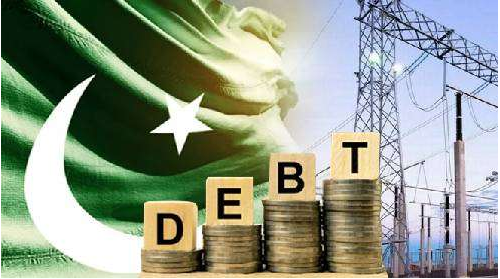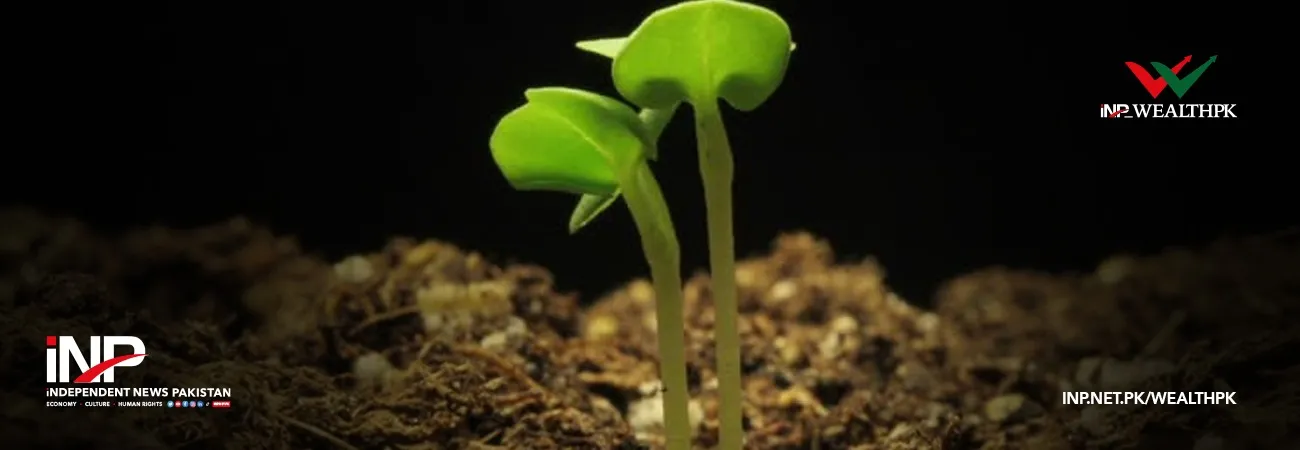INP-WealthPk
Moaaz Manzoor
Pakistan has taken one of its boldest fiscal steps in years, securing a Rs1.225 trillion bank facility to ease the longstanding burden of circular debt—its largest-ever financing and restructuring transaction.

The agreement was signed with 18 commercial banks, including Habib Bank Limited, National Bank of Pakistan, United Bank Limited, Allied Bank Limited, Muslim Commercial Bank, Meezan Bank, Bank Alfalah, and Dubai Islamic Bank. The facility will refinance high-cost obligations by replacing the penal interest charged by Independent Power Producers (IPPs) at three-month (3M) KIBOR (Karachi Inter-Bank Offered Rate) plus 200-450 basis points, and Power Holding Private Limited’s (PHPL) interest at KIBOR +2%, with a lower-cost structure of KIBOR minus 0.9%.
To fund the debt servicing, consumers will face a Rs3.23 per unit surcharge, phased in over six years. Of the Rs1.225 trillion, Rs659 billion is earmarked to retire PHPL loans, while Rs565 billion will go towards clearing dues of IPPs, petroleum sector entities, and subsidy adjustments.
Arif Habib Limited, a securities brokerage, noted that the agreement is likely to reduce borrowing costs by 1.5-5% as expensive obligations are refinanced. Pakistan State Oil (PSO) is expected to emerge as a key beneficiary, with receivables of Rs63,857 million expected to flow through Sui Northern Gas Pipelines Limited (SNGPL), translating into an estimated Rs100/share impact.
Since December 2023, PSO has already recovered Rs75 billion from SNGPL and Rs14.8 billion from Hub Power Company (HUBC), while cutting its foreign exchange (FE-25) borrowings by Rs89 billion. Supported by debt repayments and declining interest rates, PSO’s finance costs declined to Rs34 billion in FY25 from Rs52 billion in FY24, with further easing anticipated under the debt resolution.
Other listed companies are also poised to benefit. Hub Power Company’s overdue trade debts for China Power Hub Generation Company, Thar Energy Limited, and ThalNova Power Thar (Private) Limited total Rs53 billion, Rs12 billion, and Rs11 billion, respectively, while Engro Corporation’s Engro Powergen Thar Limited receivables stand at Rs50 billion.
Lucky Cement Limited, Fauji Fertilizer Company Limited, and Thal Limited are likewise expected to gain from the settlement of coal and RLNG-based power plant dues. Despite these developments, the issue of circular debt is far from fully resolved, with total stock still exceeding Rs4.6 trillion, around 4% of GDP.
Waqas Ghani, Head of Research at JS Global Capital, told Wealth Pakistan: “The government’s energy sector reform efforts reflect urgency and are a move in the right direction; however, it is important to recognise that circular debt is fundamentally a structural issue rather than one of mere management. Unless recoveries are strictly enforced and pricing is made cost-reflective, the underlying challenges will persist.”
Meanwhile, Syed Zafar Abbas, Manager at Zahid Latif Khan Securities, noted that the longstanding challenge of circular debt has now been brought under control through secured financing. He said the government plans to eliminate it over the next six years, and described the Rs1.225 trillion agreement with banks as a significant step toward settling the issue.
Zafar highlighted that the core issue has long been the mismatch between electricity supply and revenue recovery, with the government compelled to bridge the resulting shortfall. While acknowledging the positive impact of the deal on the economy, he cautioned that the key to lasting success lies in strong management and careful oversight to prevent a recurrence of circular debt in the coming years. Overall, he said, it was a constructive move for Pakistan.
Credit: INP-WealthPk













